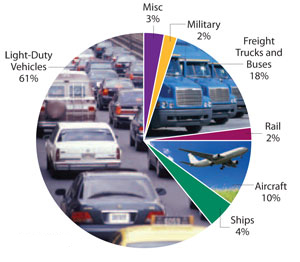Leaving the Car Behind
Having a car on campus makes driving around for pointless reasons all too common. Whether it be to get food from a restaurant, because we decide that Farinon is not going to make the cut that night, or just a trip to Wawa because walking in the cold is no fun. When one person finds out you have a car on campus, everyone else finds out very quickly. Being uncommon, finding a ride to the grocery store or Walmart is equivalent of hitting the jackpot, but not for the driver. Using almost two full tanks of gas a week is burning 42 gallons of gas for mostly unnecessary reasons. Taking into account that “every gallon of gas burned emits 24 pounds of carbon dioxide” from the Union of Concerned Scientists on http://www.ucsusa.org/ (2014), my car was emitting way too much carbon dioxide and various other gases that contribute to global warming to ignore. Excluding manufacturing costs such as extraction and transportation, each gallon is emitting about 19 pounds. At almost 800 pounds emitted a week, a big change was necessary. These emissions add up fast and as the numbers grow faster and faster, it gets more difficult to address the problem. If there is no attention soon, it is obvious that we could run out of time with irreversible changes we make to the environment. My attention to adjusting to a more sustainable behavior needed to be immediate.
While trying to think of a way to reduce the amount I drive I realized that it would not be possible to say no to all the people who would badger and coerce me into driving them. This is where the big decision came in, leaving the car at home. I realized that now that the weather is warmer, driving into town to work is no longer necessary. By walking the few blocks it takes to get to work I will reduce an enormous amount of emissions before leaving at the end of the semester. At this point I will also be used to finding ways to get around other than driving and it will be easier to change my behavior at home as well. Passenger vehicles, account for more than half of the total US transportation emissions (2014). This means that if community members reduce their emissions, the total of 30% that US transportation makes up of all US emissions can be brought down drastically.

Leave a Reply